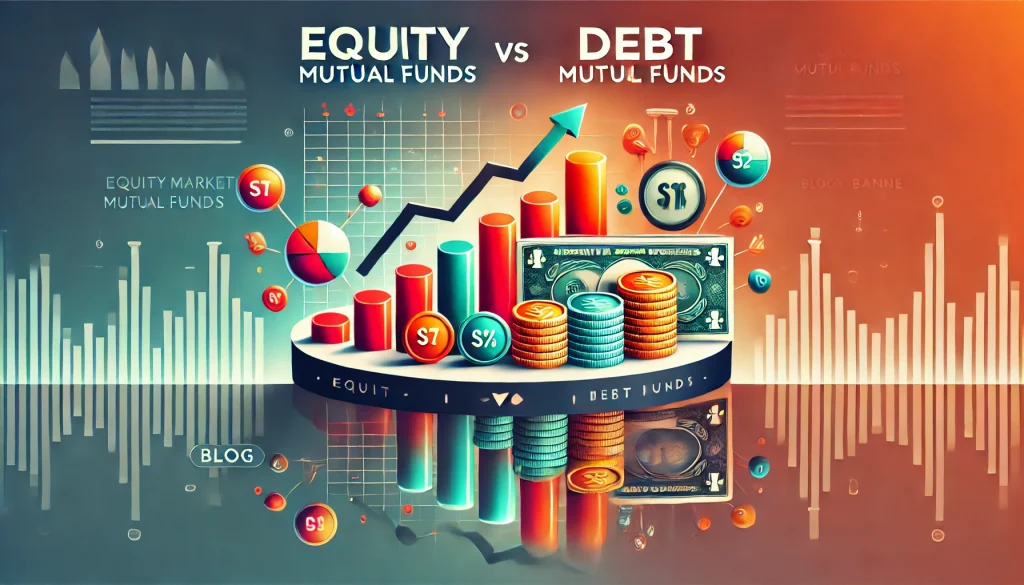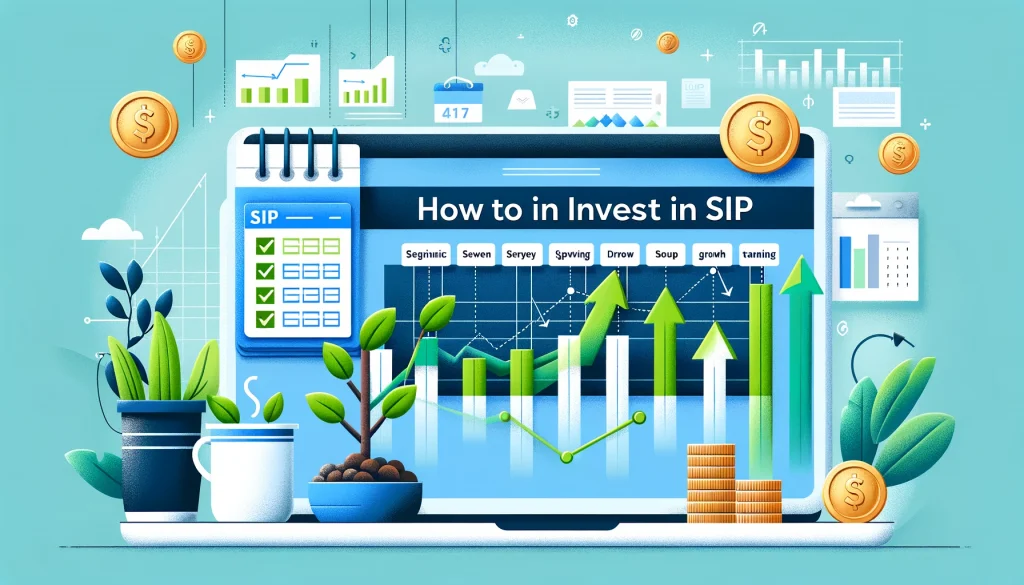
In the ever-changing world of investments, gold has remained a timeless asset that holds immense value and stability. Over the years, investors have sought various ways to include gold in their portfolios, and one such avenue is through Gold Exchange-Traded Funds (ETFs). In this article, we will delve into the world of Gold ETFs, exploring what they are, how they work, who should invest in them, their advantages, the process of investing, tax implications, and provide a final word on this golden opportunity.
What are Gold ETFs?
Gold Exchange-Traded Funds (ETFs) are investment funds that track the price of gold. These funds are traded on stock exchanges, just like stocks, making it convenient for investors to gain exposure to the performance of gold without physically owning it. Gold ETFs are designed to closely mirror the price movements of gold and provide investors with a cost-effective and accessible way to invest in this precious metal.
How do Gold ETFs Work?
Gold ETFs are backed by physical gold bullion held by the fund. The ETF issuer purchases and stores gold in secure vaults, and each share of the ETF represents a specific amount of gold. The value of the ETF shares corresponds to the prevailing market price of gold. As the price of gold fluctuates, so does the value of the ETF shares, allowing investors to participate in the potential gains or losses of gold without owning the physical metal.
Who Should Invest in Gold ETFs?
Exchange-Traded Funds offer a versatile investment option for a wide range of investors. Here are a few scenarios where investing in Gold ETFs might be suitable:
1. Diversification
Investors looking to diversify their portfolio and reduce risk often include gold as a hedge against market volatility. Gold ETFs provide a convenient avenue to add exposure to this precious metal without the complexities of owning physical gold.
2. Long-Term Investors
Gold Exchange-Traded Funds can be an ideal choice for long-term investors who believe in the value of gold as a store of wealth. They provide a passive investment approach, allowing investors to hold gold as a long-term asset and benefit from its appreciation over time.
3. Retirement Planning
Gold Exchange-Traded Funds can be a valuable addition to retirement portfolios. As a tangible asset with a history of preserving wealth, gold offers a potential safeguard against inflation and economic uncertainties. Including Gold ETFs in a retirement portfolio can provide stability and diversification.
4. Risk-Averse Investors
Investors who are risk-averse or have concerns about the security of physical gold may find Gold Exchange-Traded Funds appealing. These funds eliminate the need for storage and security concerns associated with physical gold ownership, providing a more convenient and secure way to invest in gold.
Advantages of Gold Exchange-Traded Funds
Investing in Gold Exchange-Traded Funds has several advantages, making them an attractive option for investors. Let’s explore some of these benefits:
- LiquidityGold Exchange -Traded Funds trade on stock exchanges, providing investors with high liquidity. This means that investors can easily buy or sell their shares throughout the trading day at prevailing market prices, ensuring quick and efficient execution of trades.
- Accessibility – Gold ETFs offer a low-cost and accessible way for investors to gain exposure to gold. With a single share of an ETF representing a fraction of an ounce of gold, investors can participate in the gold market with minimal investment amounts, making it accessible to a wide range of individuals.
- Transparency – Gold ETFs provide transparency as their holdings are disclosed regularly. Investors can track the fund’s performance and the underlying gold assets, ensuring transparency and accountability.
- Diversification – Investing in Gold Exchange-Traded Funds allows investors to diversify their portfolios beyond traditional asset classes. Gold has historically demonstrated a low correlation to stocks and bonds, making it an effective diversification tool.
- Cost-Effectiveness – Gold ETFs offer a cost-effective way to invest in gold compared to buying and storing physical gold. Investors can avoid expenses related to storage, insurance, and handling fees as the fund absorbs these costs.
How to Invest in Gold ETFs?
Investing in Gold Exchange-Traded Funds is a straightforward process. Here’s a step-by-step guide to get started:
- Choose a Brokerage Account – Open a brokerage account with a reputable firm that offers access to Gold Exchange-Traded Funds. Ensure that the brokerage provides a user-friendly trading platform and competitive commission rates.
- Research and Select the Right Gold ETF – Conduct thorough research on different Gold Exchange-Traded Funds available in the market. Consider factors such as expense ratio, liquidity, fund size, and track record. Select the ETF that aligns with your investment goals and risk appetite.
- Fund Your Account – Deposit funds into your brokerage account to have capital available for investment. Determine the amount you are comfortable investing in Gold ETFs based on your financial goals and risk tolerance.
- Place Your Trade – Using the trading platform provided by your brokerage, place an order to buy the desired amount of shares of the chosen Gold ETF. Review the order details and execute the trade.
- Monitor and Manage – Regularly monitor the performance of your Gold ETF holdings. Consider rebalancing your portfolio periodically to align with your investment strategy and risk tolerance.
Why Should You Invest in Gold Exchange-Traded Funds?
Investing in Gold Exchange-Traded Funds can offer several compelling reasons for investors. Let’s explore some key advantages:
- Diversification and Risk Management – Including gold in an investment portfolio can provide diversification and act as a hedge against market volatility. Gold ETFs offer a convenient way to add exposure to gold and manage risk effectively.
- Potential for Capital Appreciation – Gold has demonstrated the potential for long-term capital appreciation. As a finite resource with intrinsic value, gold can serve as a store of wealth and provide favourable returns over time.
- Ease of Trading – Gold ETFs can be bought and sold on stock exchanges, providing investors with flexibility and liquidity. This ease of trading ensures that investors can take advantage of market opportunities and adjust their positions as needed.
- Professional Management – Gold Exchange-Traded Funds are managed by experienced professionals who actively track the performance of gold and make investment decisions accordingly. Professional management can provide peace of mind to investors who may lack the time or expertise to manage gold investments themselves.
Tax on Gold Exchange-Traded Funds
Tax considerations are essential to understand when investing in Gold Exchange-Traded Funds. The tax treatment of Gold ETFs may vary depending on the jurisdiction and individual circumstances. Here are a few key points to keep in mind:
- Capital Gains Tax: Profits made from selling Gold ETFs may be subject to capital gains tax. The tax rate depends on the holding period and the applicable tax laws in your jurisdiction.
- Dividend Tax: Gold ETFs that distribute dividends may be subject to dividend tax. The tax treatment may differ based on the dividend type and the investor’s tax bracket.
It is advisable to consult with a tax professional or financial advisor to understand the specific tax implications of investing in Gold Exchange-Traded Funds based on your individual circumstances.
Final Word
Gold Exchange-Traded Funds offer investors a convenient and cost-effective way to add exposure to the precious metal in their investment portfolios. With their liquidity, transparency, and potential for diversification, Gold ETFs can be an attractive option for various types of investors. However, conducting thorough research, understanding the risks involved, and consulting with a financial advisor before making any investment decisions are essential.
Investing in Gold ETFs can provide an avenue to participate in the potential gains of gold while mitigating some of the complexities and costs associated with physical gold ownership. As with any investment, aligning your investment strategy with your financial goals and risk tolerance is crucial.
FAQs
No, Gold Exchange-Traded Funds represent ownership of gold held by the fund, while owning physical gold involves buying and storing the actual metal. Gold ETFs offer a convenient way to gain exposure to gold without the hassles of physical ownership.
Yes, Gold ETFs are traded on stock exchanges, and investors can buy or sell their shares throughout the trading day at prevailing market prices.
Gold Exchange-Traded Funds are primarily designed for long-term investment purposes. While they can be traded in the short term, it is crucial to consider the potential impact of transaction costs and short-term price fluctuations.
When selecting a Gold ETF, consider expense ratio, liquidity, fund size, track record, and investment goals. Conduct thorough research and consult with a financial advisor if needed.
old ETFs carry risks such as price volatility, counterparty risk, and the potential impact of economic and geopolitical factors on the price of gold. Understanding and assessing these risks in relation to your investment objectives and risk tolerance is important.
Disclaimer
This article is solely for educational purposes. Stable Money doesn't take any responsibility for the information or claims made in the blog.


